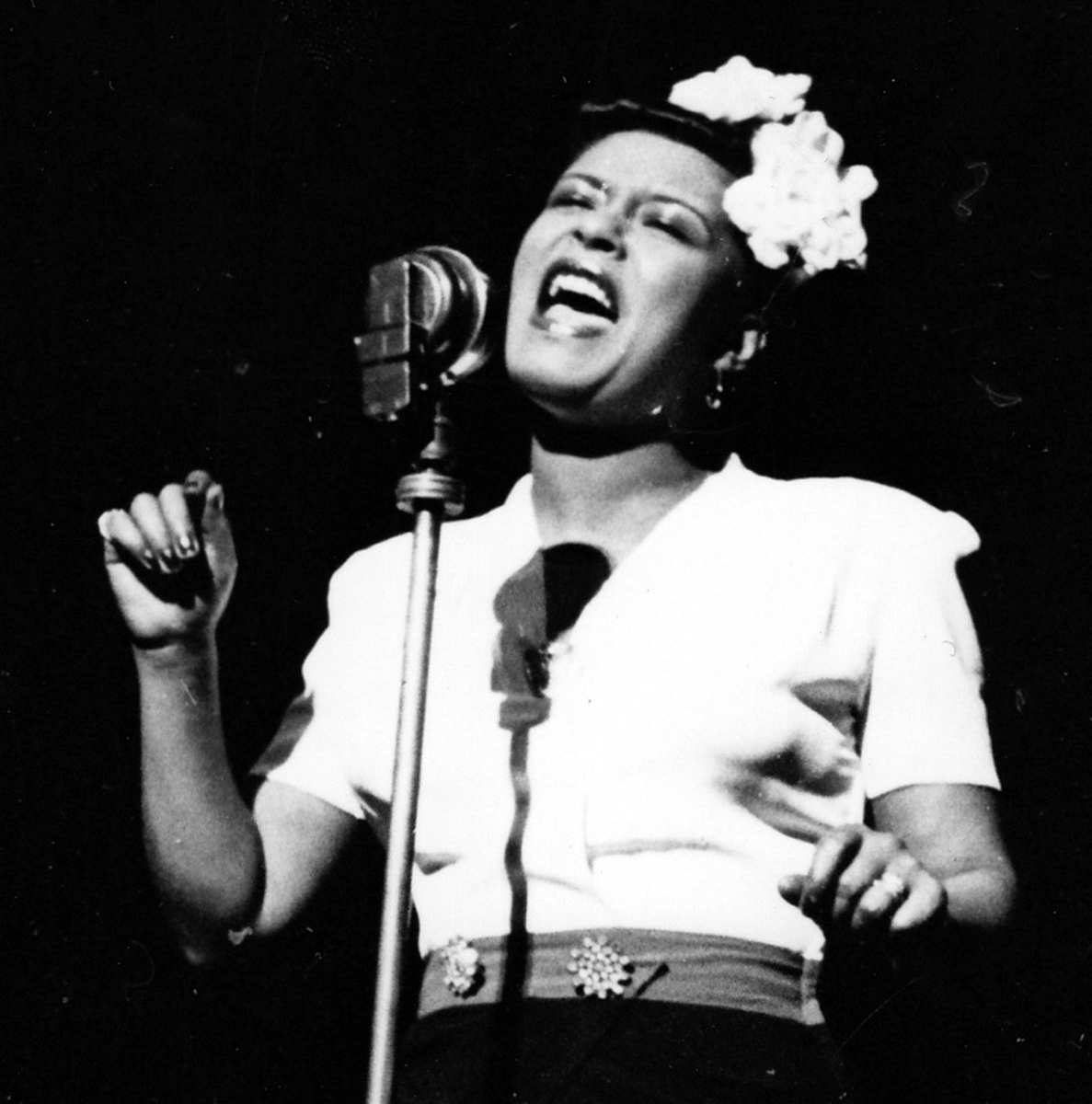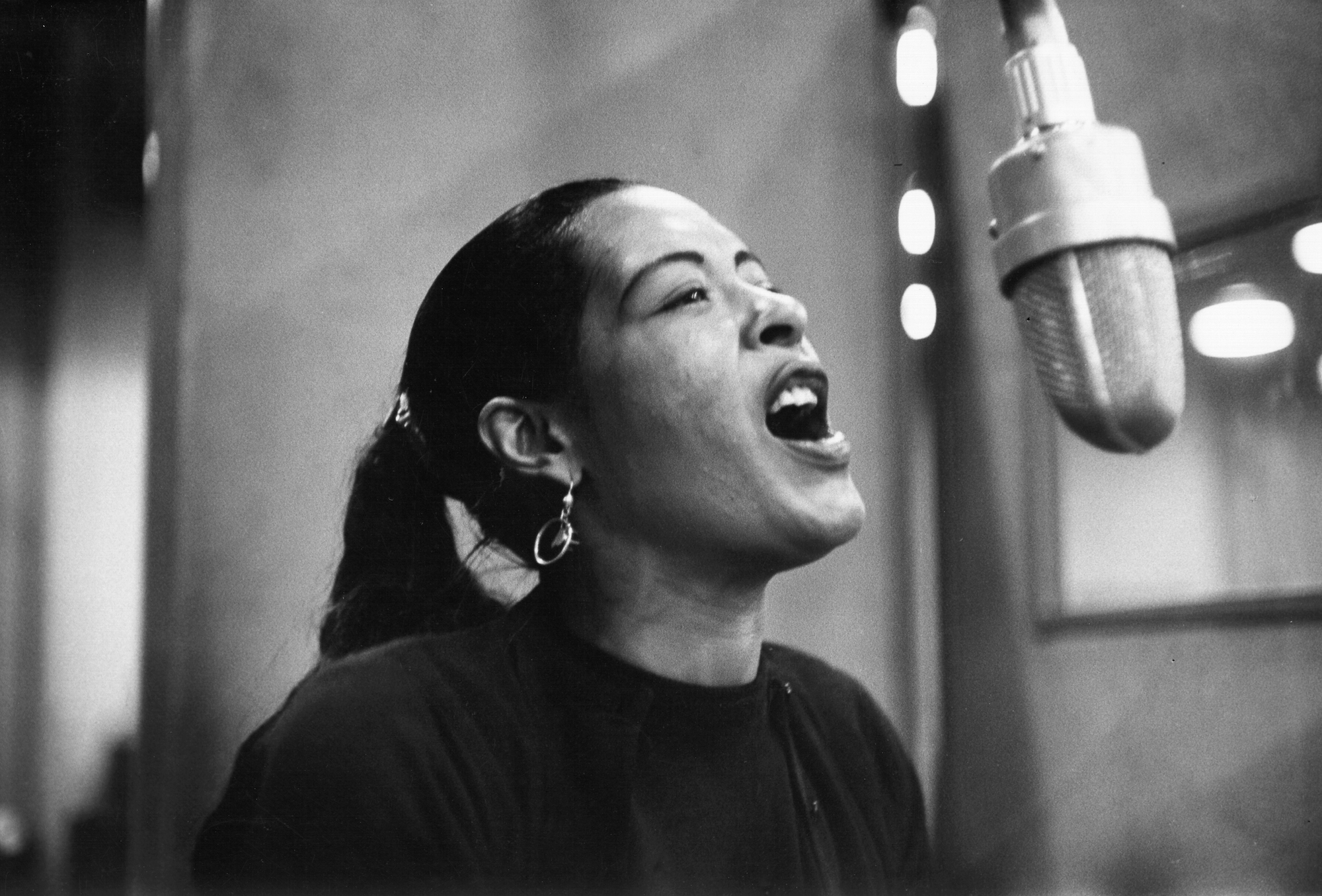
Billie Holiday is iconic. She took the inspiration of Pops (Louis Armstrong) and literally created a standard for songsters. When I first heard her recorded voice, I was not overly impressed. But it wasn’t her, it was me. I was too young. I really believed that life, at its best, had the potential to be, or at least ought to be, a bed of sweet-smelling roses with very few thorns–oh, the naive of youth. I had not yet realized that the taste of sweet was so sweet precisely because inevitably, if we lived, we would come to know bitter so well. Nor had I conceptualized how the twin siblings of sweet and sour were inextricably woven into the very fabric of life.
Billie’s signature 1939-song was written by Abel Meeropol, a Jewish school teacher. While the subject matter has too often been considered controversial, what I had overlooked was the tremendous social consciousness and commitment Billie Holiday exhibited not only in singing the song, but also going on to record the song–this when the lynching of Black people was an occasion for a Sunday afternoon picnic by racists and their families–yes, in some cases, children were brought to observe the ritual murders.
A major reason that Billie herself was the subject of an attempted legal lynching was because she had called them out. Sang them out. This was more than mere protest. This was defiance: putting one’s career, how one will be eternally perceived, putting all of that on the frontlines. Standing up and singing out, when many performers were afraid to even say the names of tortured victims. Of course, there were some who did. And yes, the NAACP had promoted anti-lynching campaigns way back in 1918.

Yet, no popular figure did what our light-skinned, dark lady of song dared do. If it came to that, popularity be damned. Think of it: a so-called “torch singer” who had miserable luck with men, a lady who was betrayed by a lying, fake-ass lover as she lay on her death bed. Think of it. She sings a song written by a communist focusing on the deadly travails of Black men and also of Black women in the twenties, thirties, forties and fifties. Billie condemns what was then an all-American past-time.
For me, her upright, warrior stance was a reason to love, to always revere and respect Billie Holiday. Not the maudlin woe is me lament of Pop’s “what did I do / to be so Black and blue”. Billie knew. It was not a question of what did we do. We didn’t hang ourselves. As tragic a tale as it was, the racist murdering of us, was a stain on the society we struggled with and strove to surmount. Did the devil make them do it? Or were some of them really little devils with their knees on our necks, replacing ropes when no other noose was near at hand.
I think of another stalwart soul, Ida B. Wells, mounting a major campaign throughout the first third of the twentieth-century and refusing to be quiet about our twisted deaths in the land of both our birth and, wickedly, too often of our murder in killing fields that even occurred in town squares. We may forgive our country but we should never forget that far too many of our not-so-distant relatives, neighbors, and legal authority figures are literally murderers, murderers of the first degree.
Thank you Billie Holiday. Thank you our Lady of both our beautiful, and unfortunately also of our tragic, days plowing this bitter earth, which, in the words of Dinah Washington, another great singer, we tussle with striving to come to the conclusion that it may not be so bitter after all, i.e. after all our efforts to wrestle with racists as we continue, somehow, to find and share love with and for each other.
